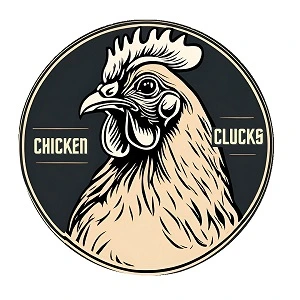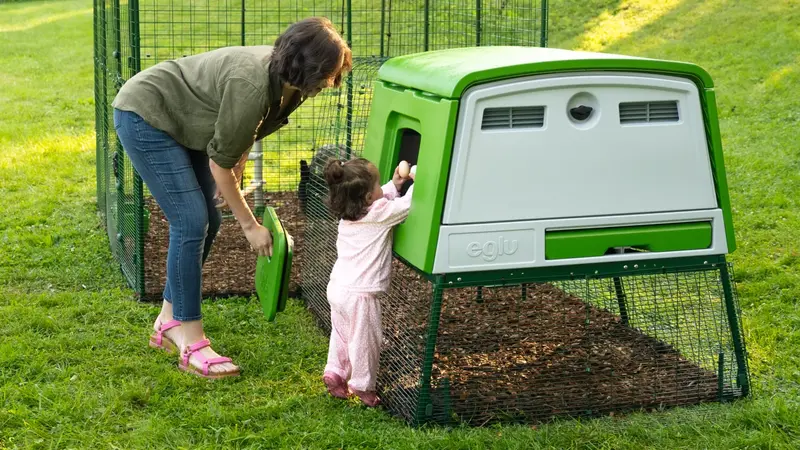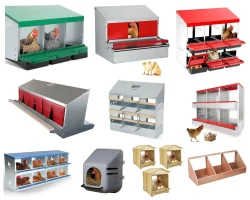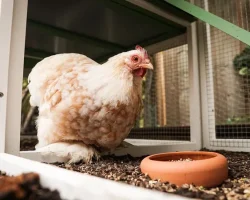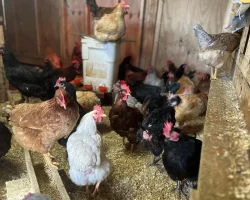If you have been thinking about getting a chicken tractor, you probably have many questions. But, there is no need to worry. You are in the right place, whether you are new to backyard chickens or looking for the best chicken tractor to upgrade your flock’s setup. As a chicken expert with more than a decade of experience, I am here to help you answer your questions!
I would like to talk about the most common questions that people have about chicken tractors and get you on your way to housing happy, healthy hens!
If you like more information on chicken coops in general, read our Ultimate Chicken Coop Guide.
1. What is a Chicken Tractor?
A chicken tractor is a portable chicken coop on wheels. It is specifically designed to move around your yard or farm. As an all-in-one chicken home, playground, and lawn maintenance tool, this portable coop typically has an open floor so that your chickens can easily peck at the grass, dig for bugs, and even fertilize your soil! The best part? It helps your chickens to stay protected from any predators that may be lurking in the vicinity.
2. Why is it Called a Chicken Tractor?
Alright, so the name “chicken tractor”, comes from the way that chickens love to scratch and peck the ground as they move around. In essence, they “till” the soil like a tractor, keeping it aerated and healthy. The best part for many chicken farmers is that it is all-natural, making it an eco-friendly choice.
3. What are the Benefits of a Chicken Tractor?
In my experience, chicken tractors are perfect for those who would like to start their own chicken coop or even those who would simply like to add a few more chickens to their backyard. Here are the many other benefits of owning a chicken tractor.
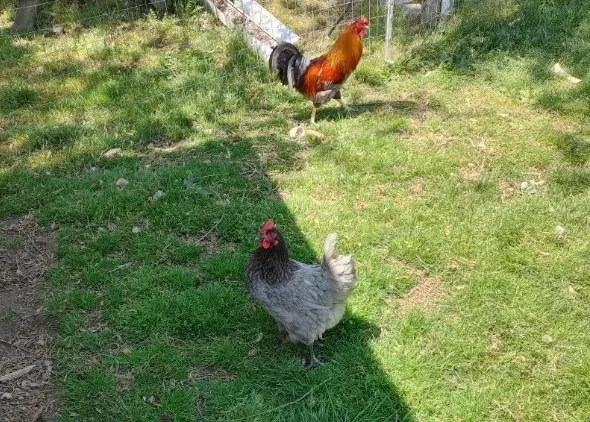
Fresh Forage for Happy Chickens
Chickens are natural foragers, and when they are in their chicken tractors, they have unlimited access to grass, weeds, and insects every day. It is this variety in diet that keeps them healthy and active as they seamlessly fit into your daily activities. Remember, healthy chickens are happy chickens!
Natural Fertilizer
As your chickens peck and scratch at the soil around them, they leave their droppings behind. These droppings, in turn, enrich your soil and keep your lawn in tip-top shape. These tractors can also be moved around so that you can fertilize every inch of your yard without having to stress about the mess that is often left behind in a stationary coop.
Easy Pest Control
I know all too well about the worry of pesticides in your garden, especially when your chickens are roaming around in their chicken tractor. Fortunately, chickens are a natural form of pest control and will be able to munch on grubs, ticks, and other insects as they make their way through your garden. The good news? You will save on pesticides and raise healthy chickens at the same time!
Predator Protection
As a chicken farmer, I know how important it is to protect your flock from unwanted predators while roaming. Chicken tractors are enclosed structures that protect your chickens and also give them the chance to enjoy the great outdoors without running the risk of encountering any predators.
Healthier Grass and Less Work for You
Cleaning out a large stationary chicken coop can be a time-consuming exercise, and often you will find an over-concentration of waste in one spot of your garden. The beauty of chicken tractors is that you can move them around, give your grass the boost that it needs to thrive, and avoid too much waste from accumulating in one spot. Plus, moving the tractor around is far easier than cleaning out a large chicken coop.
4. Can I Build a DIY Chicken Tractor?
Absolutely! If you are not sure where to start, there are plenty of chicken tractor plans that you can find online to get you started. Keep in mind to use light building materials, and wheels, to make it easy to move.
However, truth be told, most hobby chicken keepers prefer to buy a plastic chicken tractor, because it is more light-weight and has additional benefits. Go to question number 5 for more information.
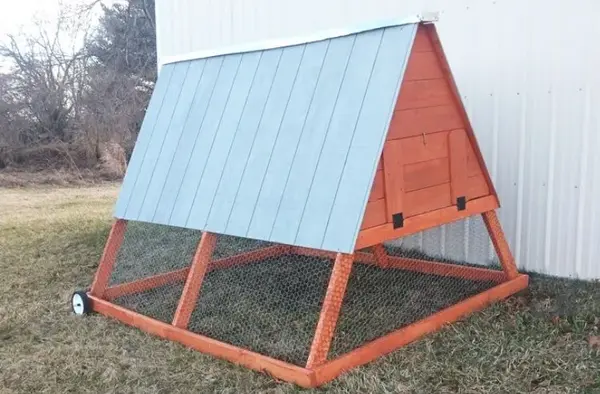
Click here to see the a frame movable chicken tractor for 3-5 on Ana-white.
5. What’s the Best Chicken Tractor for Sale?
I would say, that the portable Omlet chicken coops on wheels are a great option. They have a compact and lightweight design, are made of durable materials, and are easy to clean with a pressure washer.
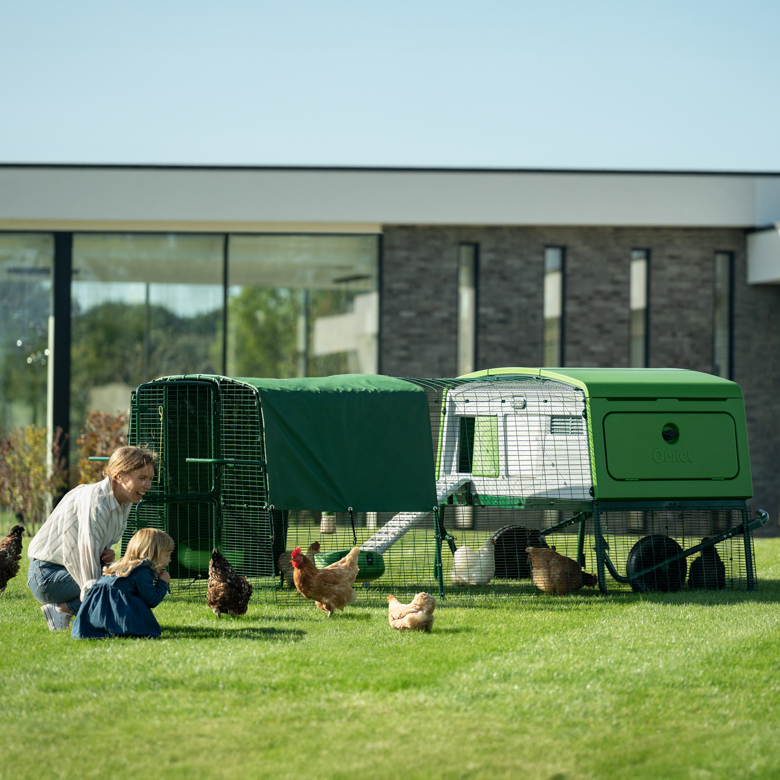
If you are not sure what size to get, have a look at the different models available to you. These include the:
- Omlet Eglu Go: This is perfect for 3 large chickens or 4 bantams.
- Omlet Eglu Go Up: This model is an elevated version of the Eglu Go, giving your chickens more space to run around underneath the coop.
- Omlet Eglu Cube: If you have a larger flock, then the Eglu Cube has the capacity to house up to 6 large chickens or 10 bantams.
- Omlet Eglu Pro: If you need more space, then the Eglu Pro is designed to house up to 10 chickens or 15 bantams, and also has advanced features suited to larger flocks.
Even though I prefer the high-quality chicken tractors of Omlet, of course, more options are available.
6. How Many Chickens Can a Chicken Tractor Hold?
A small chicken tractor or coop with wheels can house 2-4 chickens, while larger ones can hold about 10. The rule of thumb is to always consider the size of your flock. This is because chickens need enough space to feed and roam comfortably.
Keep in mind that chicken tractors for very large flocks do not exist, since they will probably be too heavy or difficult to move around.
7. How Do I Move a Chicken Tractor?
Fortunately, many designs are lightweight and have wheels or skids. So, they can be easily pulled by hand, and you don’t have to be incredibly strong to move your chicken tractor around. Some coops have retractable wheels that can be folded out when the coop has to be moved.
8. Do I Need to Let My Chickens Out of the Tractor?
Not necessarily. Your chickens and you can have the best of both worlds! If your chicken tractor has enough space, feed, and water, your chickens can stay inside. You do, however, have the option to allow them free-range when the time is right, which means that you can give them a good balance between outside roaming and the chicken tractor.
9. How Often Should I Move a Chicken Tractor?
This is a question that is often asked. In my experience, it is a good idea to move your chicken tractor around daily to prevent any overgrazing. Then again, if you take the number of chickens that you have and the quality of your grass into account, you will know when your chicken tractor needs to be moved. The general consensus: If the underneath area starts to look bare, then it is time to move your chicken tractor.
10. What’s the Best Flooring for a Chicken Tractor?
This all depends on your circumstances. Most chicken tractors have no floors so that your chickens have free reign to scratch in the dirt. However, some chicken keepers like to use removable wooden slats or rubber mats for extra protection, especially if they want to prevent predators from digging in and harming their flock.
11. Can I Use a Chicken Tractor Year-Round?
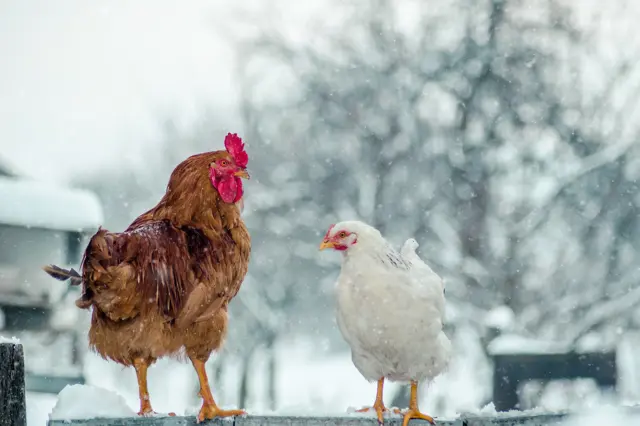
Absolutely! Just remember that chicken tractors may need to be insulated if you live in colder climates to provide your chickens with extra warmth. If you live in a warmer climate then it is important to make sure that your chicken tractor is ventilated and provides your flock with enough shade.
Read more tips on how to keep to keep your chickens warm in winter.
12. What Materials Should I Use to Build a DIY Chicken Tractor?
Many materials can be used to build your very own DIY chicken tractor:
- Wood: This is a great choice, but it can be a bit heavy.
- PVC pipes: These are both lightweight and weather-resistant.
- Metal or aluminium framing: Durable, and predator-proof.
- Wire mesh: This gives chickens the best ventilation and protects them from predators. Please do not use chicken mesh, as this will not keep predators out.
- Roofing materials: Corrugated plastic or metal can be used to protect your chickens from the elements.
- Wheels or skids: A great addition to help you to move the tractor around easily.
13. Do Chicken Tractors Protect Against Predators?

Yes, but only if they have been built properly. It is crucial that when building your chicken coop, you use strong wire mesh and secure latches. You also need to make sure that the structure is sealed tightly to prevent any predator attacks.
14. Will chickens lay eggs in a chicken tractor?
Yes, chickens will lay eggs in a chicken tractor if they have comfortable nesting boxes, shade, and stability. The same as in a regular chicken coop. Ensure the boxes stay in a consistent location, preferably in the chicken tractor coop. Providing a quiet, secure space will encourage hens to use the nests instead of laying on the ground.
15. What are the disadvantages of a chicken tractor?
While chicken tractors have many benefits, they also come with some drawbacks. Here are a few disadvantages to consider:
- Frequent Moving Required: Since chicken tractors rely on fresh ground for grazing, you’ll need to move them regularly to prevent overgrazing and keep the area clean.
- Limited Protection in Harsh Weather: Most chicken tractors are lightweight and may not provide enough insulation against extreme heat, cold, or strong winds.
- Predator Risks: Poorly designed chicken tractors can be vulnerable to predators. They are built lightweight and might be weak if the wrong materials are used. Also, a chicken tractor without a bottom can be vulnerable to several digging predators that can burrow underneath to reach your flock. For example, raccoons, foxes, coyotes, weasels, skunks, and dogs. To prevent this, add a hardware cloth skirt around the edges, extending outward to discourage digging. Or, even better, bury a predator apron (wire mesh) a few inches into the ground around the chicken tractor’s perimeter.
- Size Limitations: Chicken tractors are typically smaller than permanent coops, which can limit the number of chickens you can keep comfortably.
- Hard to Move on Uneven Terrain: If your yard isn’t flat, moving a chicken tractor can be challenging, especially if it’s heavy or has small wheels.
- Limited Space: Some designs prioritize mobility over comfort, meaning coop and run size may be more cramped compared to stationary coops.
16. Can I Add a Roosting Bar to a Chicken Tractor?
Yes! Installing a roosting bar a few inches off the ground will give your chickens a place to perch at night. But always make sure that the roosting bars are round or slightly fattened as this will help to prevent foot injuries.
17. Do I Need Nesting Boxes in a Chicken Tractor?
If you want eggs, then the answer is yes. Most chicken tractors for sale (like Omlet) already contain nesting boxes. If you have a DIY chicken tractor, you can easily add a small nesting box area to it. Just make sure that each nesting box is at least 12×12 inches, and place it in the quietest and shadiest part of your tractor. The eggs will come!
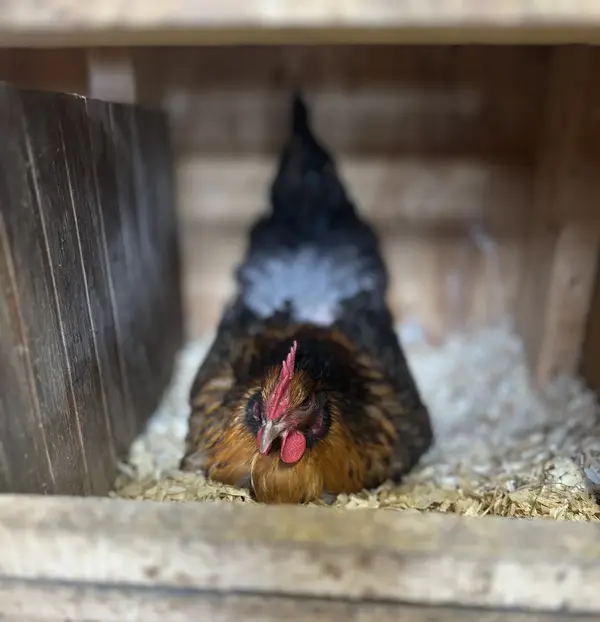
18. Will a Chicken Tractor Work on Uneven Ground?
This all depends on the design of your tractor, as well as the unevenness of the ground. Luckily, most chicken tractors have reinforced corners to help maintain their stability. If your yard is extra bumpy, then you may need to think about adjusting its height or adding skids instead of wheels.
19. Can a Chicken Tractor Work for Meat Birds?
Certainly! Chicken tractors give your flock access to fresh grass, while keeping them safe, which means that they are perfect for raising meat birds. However, bear in mind that meat birds grow quickly, so you need to prevent overcrowding.
20. How Do I Choose the Best Chicken Tractor for My Needs?
Chicken tractors come in so many designs and sizes to cater to your specific needs. Whether you go for an Omlet chicken coop, or a DIY chicken tractor, there’s an option for everyone.
What you need to consider:
- How many chickens you have.
- The size of your yard.
- The climate and predators.
- Your budget.
- Ease of movement.
Final Thoughts
Chicken tractors are a fantastic option for backyard chicken keepers who want to provide fresh pasture, protect their flock, and make coop maintenance easier. By answering the top 20 questions, I hope you now feel confident enough to make a decision. Whether that is a regular chicken coop or a chicken tractor, choose or build the right one for you and your chickens.
Enjoy your clucking chicken coop!
